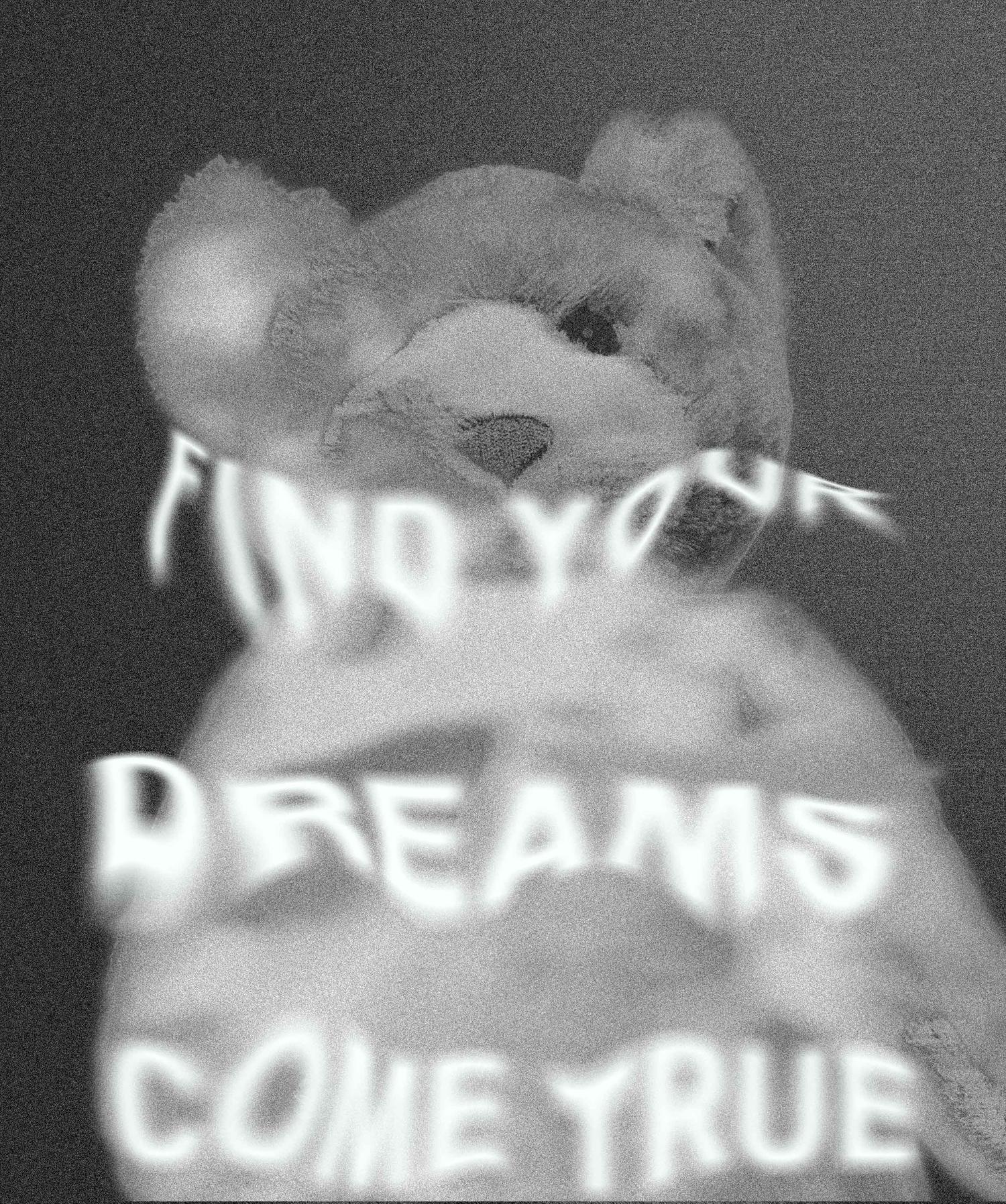|
What Does It Really Mean to be a Jeen-Yuhs? |
By Lauren Logan
April 11, 2022

Graphic by Jaycee Jamison
Kanye speaks his truth, no matter whether that truth is good, bad, controversial, or the like. The real question is – is blatant authenticity a quality to be admired, or despised?
Kanye West – a name that needs no introduction. He’s the artist without limits, the 21-time Grammy winner, the most controversial figure in hip-hop today, and arguably one of the most influential rappers to have ever lived. No matter what you may think of him, his impact on music is undeniable, and today, most people would consider Kanye a household name.
But the thing is, Kanye wasn’t always a household name. You probably wouldn't have believed me if I had told you all of this twenty years ago, and for good reason, too. Who would’ve expected that Jay-Z's right-hand-man would go on to win just as many Grammys as Jay himself? Who would’ve expected that the kid from Chicago could give the East Coast and West Coast rappers a run for their money? And who would’ve thought that the producer with his jaw wired shut would go on to release seven platinum albums and hundreds of chart-topping songs?
The answer is: practically nobody. Well, nobody except for three people – Coodie Rock, Donda West, and Kanye himself. Luckily for us, Coodie believed in Kanye’s vision so much that he decided to drop everything he was doing for a chance to document Kanye’s rise to fame. And that’s where the idea for the Jeen-Yuhs documentary first began.
Deep down, Coodie knew that Kanye would eventually become a huge success–for him, it was just a matter of time. But even he was surprised by the success of his predictions. Not only did Kanye’s debut album catapult him to instant stardom, but almost 20 years later, his three-part documentary Jeen-Yuhs has finally premiered, easily becoming one of the most highly anticipated Netflix releases of all time.
For Kanye superfans, Jeen-Yuhs is captivating for many different reasons. It provides its viewers with the insider's perspective they’ve always craved, giving a detailed behind-the-scenes account of Kanye’s tumultuous, yet incredible, rise to fame. The film begins with a young Kanye working as a producer in Chicago, trying desperately to make a living by selling his beats to other artists. Although he eventually gained a decent amount of popularity within the Chicago hip-hop community, Kanye refused to spend the rest of his life making other people more famous. Instead, he decided to move to New York to pursue his long-time dream of becoming a rapper. But he still had a long way to go before his dreams would come to realization.

Graphic by Jaycee Jamison
Throughout his career, Kanye’s had just as many failures as successes, just as many controversies as stories of praise, and just as many enemies as close friends. And Jeen-Yuhs leaves none of those setbacks to the imagination. While depicting Kanye’s rise to stardom, the documentary takes us through several secret recording sessions with other big-time artists, such as Pharrell Williams, Jay-Z, Dame Dash and more. These artists initially saw Kanye as a great producer, but nothing more. But as soon as he put on one of his classics, they couldn’t believe what they were hearing. Whether it came from Pharrell saying “that shit is phenomenal” or Jay-Z telling Coodie that he “put his money on him,” their perception of Kanye as an artist changed almost immediately.
But even after hearing those acclamations, Kanye continuously had to prove himself to every artist he came across. In that way, the documentary further solidified what Kanye fans had known about him for years on end. Kanye is hungry. And he’s always been hungry. And he’s not one to let other people’s perceptions of him change the way he views himself. As Kanye puts it in episode three, “You gonna love me, you gonna hate me, but I’m gonna be me.”
Unfortunately, it’s this very sentiment that has gotten Kanye into trouble countless times before. In a way, Kanye’s authenticity and confidence are admirable. Among all the secret recording sessions, the inside scoops, and the personal relationships featured in the film, Kanye’s confidence is what sets the film apart from other celebrity documentaries. But what happens when that confidence is taken just a bit too far? Is it possible to support Kanye without defending all of his actions? And if so, is it possible to criticize him for expressing his opinion when that’s a large part of how he became famous in the first place?
At this point, it’s impossible to deny that Kanye often crosses the line with some of his controversial statements. From making fun of Pete Davidson to criticizing Kim for her parenting style, his statements typically provoke intense backlash. Many fans (and some celebrities, such as Julia Fox and The Game) try to defend Kanye by saying that everything he does is an extension of his art, meaning that we shouldn’t take his actions seriously. But that’s just a cop-out—it doesn’t get to the true heart of the issue. Kanye’s statements are often indefensible, and as a Kanye fan, it’s best to know when to step back and stop trying to compensate for his actions.
Yet, at the same time, it’s interesting to note why people feel the need to defend Kanye in the first place. Many critics claim that it’s simply because he makes good music, but that still doesn’t explain why his fans have stuck beside him all this time. Personally, I believe that a large amount of fans are still attracted to Kanye’s personality—more specifically, his confidence and his ability to speak his mind. For them, it’s less about what Kanye says and more about his willingness to say it. Despite all his crazy actions, people forget that there’s still a lot to admire about Kanye. His authenticity is rare in a world where so many people feel the need to disguise their true feelings, and you can always count on him to be fearless in the pursuit of his passions. That’s a huge part of what the documentary showed in the first place. In the film, Kanye acted very similarly throughout his rise to fame. Whether he was arguing with others over whether he should be considered a genius or defending his artistic choices to other well-experienced rappers, it was always his way or the highway. That may or may not be a good attitude to have, but nevertheless, it’s a central part of what makes Kanye Kanye, and it’s taken him quite a long way so far.
That being said, I do think it’s possible to be a fan of Kanye without defending all of his statements. But it’s much more difficult to criticize Kanye for his tendency to make those statements in the first place. You may not agree with everything Kanye says, but criticizing Kanye’s willingness to speak his mind is essentially criticizing Kanye’s overall character. His fearlessness and his general disregard of consequences may seem to be ruining his career, but that same fearlessness is often channeled into passion, and that’s what his fans are so attracted to. Kanye says what he believes in. He speaks his truth, no matter whether that truth is good, bad, controversial, or the like. The real question is–is blatant authenticity a quality to be admired, or despised?
If I had to give one overarching summary for the entire three-part film, it would be this: By delving into Kanye’s incredible successes and showing us the confidence he had throughout his rise to fame, Jeen-Yuhs leaves us with a fundamental question—one that Kanye has asked his fans several times before: “Would you believe in what you believed in if you were the only one who believed in it?”
Ultimately, that’s something we’ll all have to answer for ourselves. ■
Other Stories in Culture
© 2024 SPARK. All Rights Reserved.
